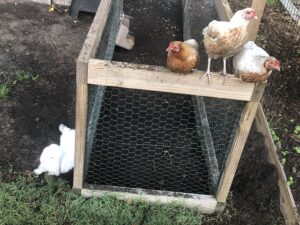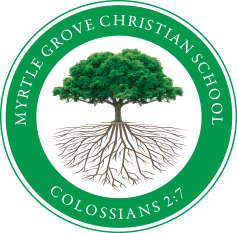Three Chickens, A Rabbit, and A Dragon
Did you know that MGCS is home to a few animals?

In March of 2021, a Holland lop rabbit joined the chickens in our garden classroom. Students voted to name him Peter. Peter is a relaxed, laid back member of our farm family. He loves to eat lettuce and dandelions and hop around the chicken yard. Because Peter is sensitive to heat and cold, he needs to come inside from time to time. Peter just returned to us from a lovely summer vacation with the Arnette family. You can find him with the chickens in the garden behind the Timothy Center.
Lucy, the school’s resident bearded dragon, came to us last February. MGCS is Lucy’s retirement home, as she is 8 years old. This Australian native has very specific environmental and nutritional needs. All of us have enjoyed learning about this unique and unusual part of God’s creation. Lucy loves to eat greens, mealworms, crickets, and blueberries. She sheds her skin once a year and when she is scared or intimidated, she turns black and her beard will puff up and become spiky. Lucy makes her home by a big window in the Timothy Center. She loves visitors and is surprisingly responsive to voices and movement.
These animals are engaging and popular additions to our campus but there are deeper reasons for making animals a part of the Myrtle Grove Christian School experience. These animals are used to…
- develop stewardship
- develop godly character
- reflect and reinforce our philosophy of teaching and our instructional practices.
Read more about the intentional learning opportunities these animals provide here.

